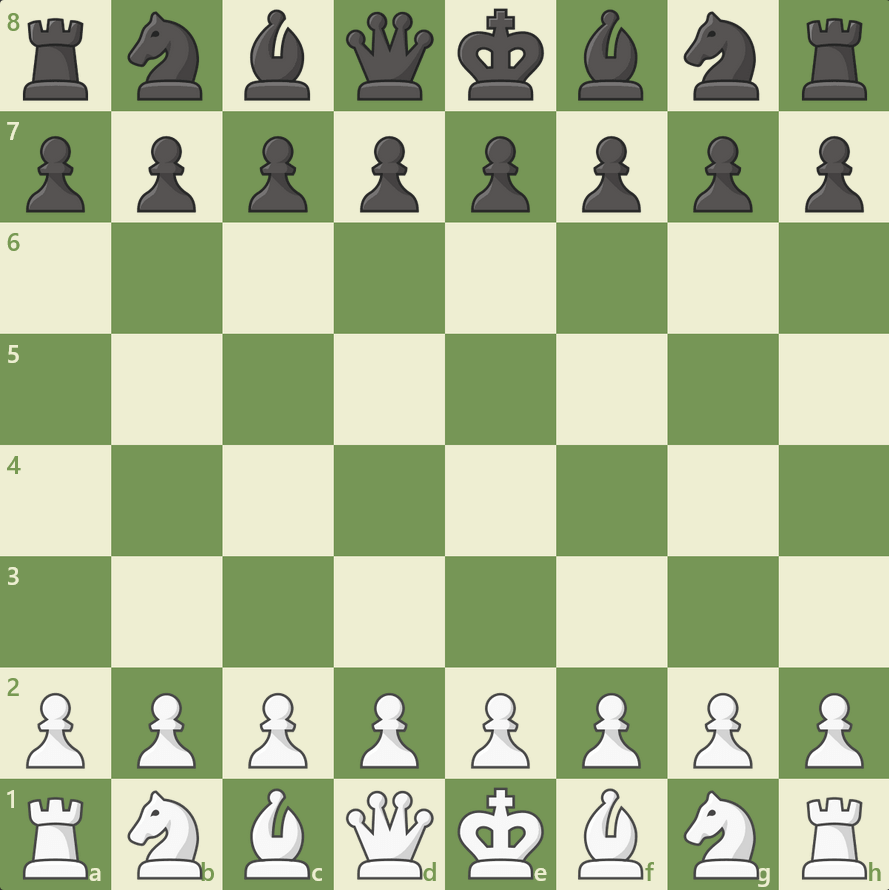Why You Have To Play Chess: The Advantages of Involving in This Timeless Pundit Challenge
Chess is greater than a straightforward game; it offers as an extensive mental exercise that hones different cognitive skills. Gamers engage in tactical reasoning and develop problem-solving abilities, which can have lasting advantages in day-to-day life. The technique needed for improvement fosters patience and durability. The real essence of chess exists not simply in its intellectual demands however in the connections it fosters within a neighborhood. Discovering these measurements reveals much about why chess continues to be classic.
Enhancing Cognitive Skills
Playing chess substantially boosts cognitive abilities, making it a valuable task for individuals of any ages. The game demands strategic reasoning and foresight, requiring gamers to expect their opponent's actions while developing a winning technique. This mental workout develops emphasis and concentration, important parts of cognitive feature.

Chess encourages imagination, triggering players to discover cutting-edge techniques and non-traditional strategies to the game. As they navigate the chessboard, people create patience and strength, crucial qualities for cognitive growth. On the whole, the complex cognitive advantages of chess make it an improving pursuit, advertising lifelong mental agility and intellectual engagement.
Increasing Problem-Solving Abilities
Many studies have shown that participating in chess can greatly enhance analytical capabilities. The game calls for players to examine intricate positions and expect the challenger's actions, promoting critical believing skills. As they browse numerous situations, chess players establish the capacity to assess several outcomes and make calculated decisions under stress. This procedure enhances their capacity to technique real-life troubles with an organized state of mind.
Chess advertises the recognition of patterns and the application of logical thinking, skills that are crucial in efficient analytic. Players learn to analyze threats and rewards, fine-tuning their judgment in unsure circumstances. The repeated nature of chess play strengthens these skills, enabling people to transfer their boosted problem-solving abilities to academic and specialist contexts. Ultimately, chess acts as a useful tool for anybody looking for to hone their analytical abilities and improve their total cognitive functioning in challenging circumstances.
Cultivating Patience and Technique
While taking part in chess can be an interesting experience, it likewise needs a considerable level of patience and self-control. Gamers must discover to thoroughly think about each step, evaluating potential outcomes and approaches. This thoughtful technique promotes a frame of mind that values long-lasting success over instant satisfaction. In chess, hasty decisions frequently result in undesirable consequences, enhancing the importance of taking one's time to evaluate the board and prepare for a challenger's feedbacks.

Self-control is additional cultivated through consistent technique and research. Gamers typically devote hours to enhancing their abilities, examining methods, and reviewing previous games. This dedication to grasping the game imparts a sense of obligation and determination, essential traits that extend past the chessboard. Ultimately, the mix of patience and self-control not just enhances a player's chess abilities yet additionally adds to individual growth, furnishing individuals with necessary tools for navigating challenges in numerous aspects of life.
Fostering Creative Thinking and Imagination

Planning moves includes not simply reasoning but also the ability to expect a challenger's feedbacks, motivating players to envision multiple paths and alternatives. As players explore various strategies, they learn to innovate and adjust, boosting their innovative analytical abilities.
The game's complexity welcomes gamers to explore unique concepts and strategies, leading to individual styles of play - Chess. This exploration supports a sense of imaginative expression, as each player crafts their very own approach to challenges on the board. Ultimately, chess becomes a canvas for creativity, enabling people to reveal their special viewpoints while developing their creative capabilities
Structure Social Connections and Community
Playing chess uses chances for people to network via competitions and local chess clubs. These settings cultivate connections among players, developing a feeling of area centered around a shared interest. Engaging in these tasks not only boosts abilities but likewise develops lasting relationships.
Networking With Tournaments
When individuals take part in chess tournaments, they typically find themselves engaged in a dynamic area of similar individuals. These occasions give a superb system for gamers to create More hints links, share strategies, and celebrate their interest for the game. Taking part in pleasant competitors fosters camaraderie, as players from diverse backgrounds come together to test each various other. Networking chances abound, with numerous individuals developing enduring relationships that expand beyond the chessboard. Furthermore, these competitions commonly bring in sponsors and chess fanatics, additionally improving the potential for expert connections. As gamers engage in discussions about strategies and experiences, they construct a network that can bring about future cooperations and opportunities within the chess globe and past.
Local Chess Clubs

Giving an Enjoyable and Engaging Difficulty
Chess supplies a distinctly boosting experience that mesmerizes players of article source every ages, as it incorporates tactical thinking with the excitement of competition. This timeless video game offers a compelling difficulty, encouraging people to assume seriously and artistically. Each match unravels as a fight of wits, where players must anticipate their opponent's actions while creating their own techniques.
The intellectual involvement chess provides is matched by its ability to amuse. Players often discover themselves submersed in the game, shedding track of time as they navigate intricate positions and tactical predicaments (Chess). This heightened emphasis cultivates a feeling of accomplishment, especially when a hard action results in triumph
Chess advertises social interaction, enabling gamers to bond over shared experiences and challenges. The game's countless variations assure that no two sessions are alike, keeping participants passionate to fine-tune their skills and approaches. This vibrant mix of obstacle and satisfaction makes chess an alluring search.
Frequently Asked Inquiries
Can Chess Be Played Online or in Person?
Chess can be played both online and in individual. On the internet platforms offer players the ease of contending versus opponents worldwide, while in-person video games cultivate social communication and physical visibility, improving the overall experience.
What Age Is Best to Beginning Learning Chess?
Specialists suggest that children can start learning chess as early as age 5 or original site six. At this age, they can grasp standard principles, enhancing cognitive skills while cultivating a love for the video game that lasts a lifetime.
Are There Chess Tournaments for Beginners?
Yes, there are chess tournaments especially designed for novices. These occasions supply a helpful atmosphere for newbie gamers to gain experience, improve their abilities, and take pleasure in the competitive spirit of chess without facing innovative challengers.
Exactly how Lengthy Does It Require To Become Skilled at Chess?
Becoming skillful at chess generally requires regular technique over several months to years. Variables such as individual devotion, prior experience, and research of strategies significantly affect the time required to reach a qualified degree.
What Resources Are Offered for Learning Chess Approaches?
Many resources exist for discovering chess techniques, consisting of on-line tutorials, publications by popular authors, chess applications, and interactive web sites. Lots of gamers additionally profit from joining local clubs or joining on-line discussion forums for real-time understandings.